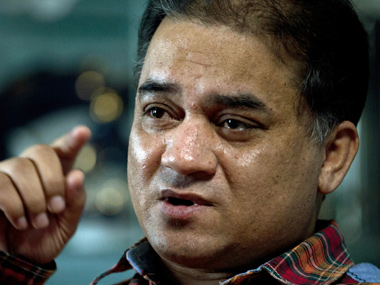Beijing: Government prosecutors marshaled 210 pieces of evidence against prominent Uighur scholar Ilham Tohti before a court sentenced him to life in prison on charges of promoting separatism in his writings and lecture, Chinese state media reported. The official Xinhua News Agency released a raft of details from the prosecutors’ case against Ilham Tohti, who was known as a mainstream mediator between the Uighur minority group and the ruling Han Chinese. The harsh sentence handed down Tuesday prompted international condemnation, including a call for his release from US President Barack Obama. Ilham Tohti. AP A Xinhua report late Wednesday said that the evidence against Ilham Tohti included video of one of his lectures where he said, “Does Xinjiang belong to the Hans? No, it first belonged to the Uighurs and it first belonged to the people of Central Asia.” The report also quoted the scholar as telling his students “I am not Chinese because I am a Uighur. My pride is that of greater Turkestan.” Xinhua reported that prosecutors also said the scholar publicized a fake opinion poll showing 12 percent of Uighurs supported separating from China and that his students had testified that he had forced separatist teachings on them. Defense lawyer Li Fangping responded that his client had only referenced someone else’s poll and hadn’t uttered the words attributed to him about not being Chinese. “That’s not accurate,” Li said. “The meaning is totally different. He’s mainly talking about the roots of Han Chinese and of the Uighur people.” Ilham Tohti denied encouraging separatism during the two-day trial last week held in Urumqi, the capital of the far western region of Xinjiang. LI said Ilham Tohti had argued he was only trying to stimulate discussion about ethnic relations in China on his website, Uighur Online, and in his classes at Minzu University in Beijing. China’s vice minister of state ethnic affairs, Luo Liming, said during a news conference Thursday that the court had strictly followed Chinese law in handing down the life sentence. “All people need to exercise their political and cultural lives based on the constitution and the state laws,” Luo said. “His violation of state laws and being punished are not issues of whether his legitimate rights have been upheld or not. … His sentencing has been carried out by the judiciary based on our state laws and regulations.” AP
China’s vice minister of state ethnic affairs, Luo Liming, said that the court had strictly followed Chinese law in handing down the life sentence.
Advertisement
End of Article
Written by FP Archives
see more


)

)
)
)
)
)
)
)
)



